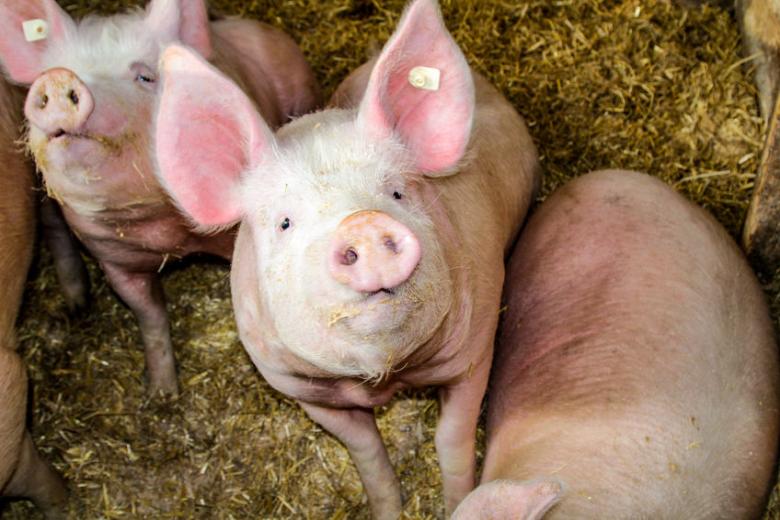Scientists to speed creation of pig vaccines

Scientists are developing a method to speed the creation of vaccines for devastating pig diseases, such as African swine fever.
British researchers are aiming to establish a reliable, large-scale system to develop and test vaccines for viral infections.
Stem cell technology will be used to develop a source of white blood cells, identical to those affected by disease in pigs, which can be used to develop vaccines containing live virus.
The team, involving scientists from the Roslin Institute and the Animal and Plant Health Agency (APHA), are particularly investigating control strategies against African swine fever virus.
Results from the study are expected to shed light on how diseases such as ASF target white blood cells, and how the cells respond to infection.
The approach seeks to improve on current vaccine testing methods, which include using blood cells derived from other animal species, or from other types of cells that resemble blood cells.
Stem cells – those in early stage of development, which can differentiate into blood cells – hold promise as a source of blood cells as they are likely to be free of contamination with disease, leading to accurate, reliable results.
Genetic modification techniques may also enable researchers to develop more efficient production of blood cells.
This approach may also enable scientists to explore whether lab-produced blood cells are able to contain high levels of virus, making them effective for vaccine development.
In addition, the application of genome editing technology to blood and virus cells could aid understanding of the role of genes in infectivity, immune response, and resistance to disease.
Dr Tom Burdon, research group leader at Roslin Institute said: "Stem cell technology applied to vaccine development can not only speed the delivery of results but limit the need for research involving animals.
"We hope that our efforts will aid the search for effective vaccines against serious diseases, which affect millions of animals and incur great cost to farmers."








